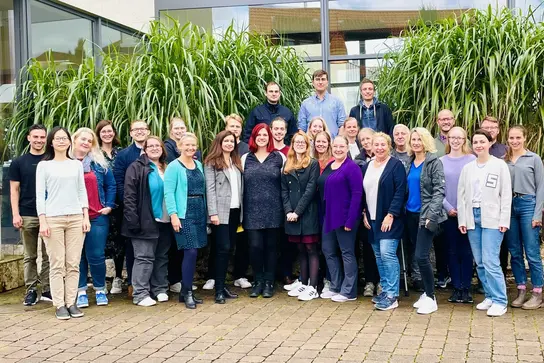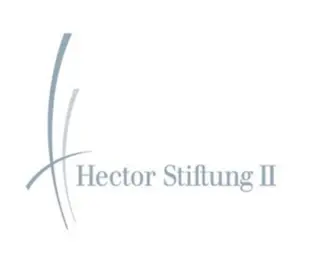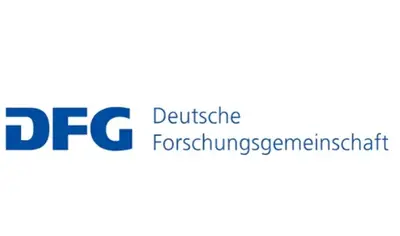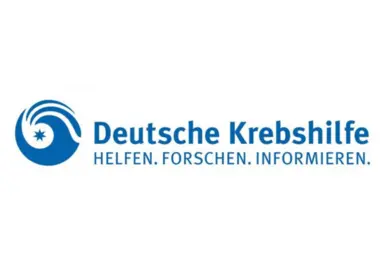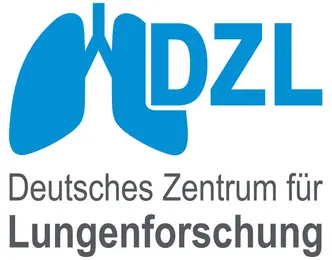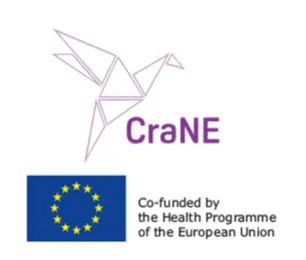Personalized Medical Oncology
- DKFZ Hector Cancer Institute
- Cell and Tumor Biology

Prof. Dr. Dr. Sonja Loges
Department Head
The Division of Personalized Medical Oncology is focused on discovering novel targeted and immune oncology treatment approaches for cancer and on investigating patterns of response and resistance to those therapies.
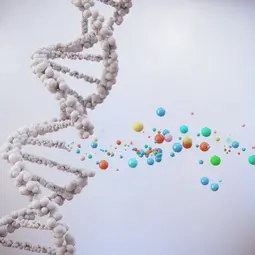
Our Research
In our laboratory and in the translational study outpatient clinic of the DKFZ Hector Cancer Institute at the University Medical Center Mannheim, we primarily conduct research projects that aim to translate insights from mechanistic basic research into clinical practice through clinical trials (Investigator-Initiated Clinical Trials, IITs), and vice versa, bringing clinical findings back into the laboratory to investigate the molecular basis of clinical outcomes. We refer to this as circular translation. Lung cancer is at the center of our work. A key focus of our research is the tumor microenvironment (TME) and its impact on tumor growth and the effectiveness of cancer therapies, such as immunotherapy. Additionally, Melanie Janning's group is working on identifying further biomarkers through liquid biopsies—analyses of material from body fluids of cancer patients. These biomarkers are intended to provide insights into the characteristics and treatment of lung cancer. The group is also involved in characterizing rare potential driver mutations in lung cancer within the nNGM and in projects concerning long-term survivors.
Projects
The aim of this project is the elucidation of the crosstalk between the tumor and its microenvironment (TME), which is known to affect tumor spread as well as therapy responses or resistance, with a focus on the TAM (Tyro3, Axl, MerTK) family of receptor tyrosine kinases, the bone niche and responses to immunotherapies.Findings from this research area are currently being translated into clinical trials.
This project focusses on the interaction of tumours and components of the nervous system outside the brain and their impact on cancer progression and therapy. While crosstalk between tumor and neural cells has already been characterized well in the brain, this is much less the case for tumors in the periphery, such as non-small cell lung cancer. This is a knowledge gap that we have just started to address.
Melanie Janning's group concentrates on using Liquid biopsies to characterize disease heterogeneity and to generate potential biomarkers for therapy response, also with a focus on lung cancer. We have already established a pipeline for the isolation and characterization of large numbers of circulating tumor cells (CTCs) from patient blood and used it to describe lung cancer heterogeneity. In addition, we are establishing a pipeline for extracellular vesicles (ECVs).
Liquid Biopsy and Single-Cell Analysis Group, PI Melanie Janning
This project concentrates on the characterization of rare mutations that may occur in lung cancer, with a focus on EGFR and FGFRs. We have designed a nationwide preclinical platform to support clinical decision-making by providing meaningful in vitro data regarding the functional consequences of rare mutations within the context of the German national Network for Genomic Medicine (nNGM). We also successfully developed an IIT specifically for patients with atypical EGFR mutations which is about to start.
nationales Netzwerk Genomische MedizinIn our Cancer Survivorship Research project, we are dedicated to to characterizing the clinical and molecular features of patients surviving their cancer diagnosis for >5 years. This patient group is also referred to as “lost patients” because after 5 years most surveillance programs usually end – although patients suffer from late side effects of the anti-cancer therapies. Our aim is to shed light on the psychosocial characteristics of this patient group and on the molecular basis of survivorship.
BGBC003 (NCT02488408): Multicenter, international Phase I/II study for the treatment of patients with Acute Myeloid Leukemia (AML) or Myelodysplastic Syndrome (MDS) using the newly developed drug Bemcentinib. It targets the receptor tyrosine kinase Axl. (Current status: Patient enrollment is complete.)
CONNECT (AIO-TF-0122) Non-interventional, prospective national registry study and platform to capture the application and outcomes of precision oncology diagnostics through next-generation sequencing (NGS), recommendations from Molecular Tumor Boards (MTBs), and the results of molecularly guided therapy in cancer.
FLAURARE (AIO-TRK/YMO-0324): Interventional Phase II study for the treatment of patients with lung cancer and rare, so-called atypical EGFR mutations in the tumor, using the tyrosine kinase inhibitor Osimertinib in combination with chemotherapy. (Current status: Enrollment will begin in Spring 2025.)
IFEM: Interventional Phase III study comparing monotherapy with the checkpoint inhibitor Pembrolizumab to a combination of Pembrolizumab and chemotherapy as first-line therapy in women with lung cancer and high PD-L1 expression (≥50%). (Current status: In preparation, activation planned for 2025.)
Alumni
Stephanie Schlichtner
PostDoc 2023-2025
Scientist, Tenure Track, Medical University Graz, Austria
Isabel Ben Batalla
PostDoc/ Team Leader/ Junior PI 2011-2024
Assistant professor and group leader, Center for Research in Molecular Medicine and Chronic Disease,
Santiago di Compostela University
Niklas Beumer
PhD Student 2021-2024
Postdoc, University of Mainz, Germany
Martin Ziegler
PostDoc/ Junior Team Leader
Software Development Engineer, Vector Informatik, Stuttgart, Germany
Róísín O'Reilly
Master Student, PhD Student 2022-2023
Scientist, Aerogen, Galway, Ireland
Jens Köhler
Physician/ PostDoc
Head of NGS Department, MVZ Labor Dr. Limbach& Kollegen, Heidelberg, Germany
Jonas Waizenegger
MD Student, Clinician Scientist 2013-2014, 2021-2023
Resident, II. Medical Clinic, University Medical Center Hamburg Eppendorf, Hamburg, Germany
Lisa Ruff
PostDoc 2021-2023
Medical Science Liaison in Haematology/ Oncology, Jazz Pharma, Germany
Umar Khalid
PostDoc 2021-2023
Scientist, Dana-Faber Cancer Institute, Boston, Massachusetts, USA
Lorena Salgueiro Ferreno
PostDoc 2021-2023
Associate Publisher, Springer Nature Group, Heidelberg, Germany
Lara Meier
PhD Student 2018-2022
Scientific Advisor, Sysmex Inostics, Hamburg, Germany
Anika Forstreuter
MD Student 2019-2021
Resident, II. Medical Clinic, University Medical Center Hamburg Eppendorf, Hamburg, Germany
Jochim Reinert
Clinician Scientist 2019-2020
Resident, II. Medical Clinic, University Medical Center Hamburg Eppendorf, Hamburg, Germany
Franca Kobus
MD Student 2017-2020
Resident, Neurology, University Clinic Erlangen, Erlangen, Germany
Florian Udonta
MD Student 2016-2020
Resident, II. Medical Clinic, University Medical Center Hamburg Eppendorf, Hamburg, Germany
Raimund Oberle, né Bauer
PostDoc 2015-2017
Group leader, Medical University of Vienna, Austria
Mark Wroblewski
PhD Student, PostDoc 2012-2017
Brand Lead EGFR+HER2 Lung Cancer, Astra Zeneca, Hamburg, Germany
Jara Schlichting
MD Student 2014-2017
Physician and Medical Coordinator, Asklepios Clinic Barmbek and Asklepios Tumor Center, Hamburg Germany
Miguel Cubas Cordova
PhD Student 2012-2016
Medical Affairs Scientist, Pfizer, Hamburg, Germany
Alexander Schulze
MD Student, Clinician Scientist 2011-2013
Deputy Medical Director Central Emergency Department, University Medical Center Hamburg Eppendorf,
Hamburg, Germany
Robert Erdmann
MD Student, Clinician Scientist 2011-2014
Physician, Asklepios MVZ Barmbek, Hamburg Germany
Selected publications
Venkataramani V, Yang Y, Ille S, Suchorska B, Loges S, Tost H, Sahm F, Pfister SM, Trumpp A, Krieg SM, Kuner T, Wick W, Winkler F
Prolonged inhibition of intratumoral mast cells enhances efficacy of low-dose antiangiogenic therapy
Berenbrok N, Vargas-Delgado ME, Beitzen-Heineke A, Schmidt C, Gensch V, Loges S, Ben-Batalla I
Rieckmann LM, Spohn M, Ruff L, Agorku D, Becker L, Borchers A, Krause J, O'Reilly R, Hille J, Velthaus-Rusik JL, Beumer N, Günther A, Willnow L, Imbusch CD, Iglauer P, Simon R, Franzenburg S, Winter H, Thomas M, Bokemeyer C, Gagliani N, Krebs CF, Sprick M, Hardt O, Riethdorf S, Trumpp A, Stoecklein NH, Peine S, Rosenstiel P, Pantel K, Loges S, Janning M
Engelmann J, Zarrer J, Gensch V, Riecken K, Berenbrok N, Luu TV, Beitzen-Heineke A, Vargas-Delgado ME, Pantel K, Bokemeyer C, Bhamidipati S, Darwish IS, Masuda E, Burstyn-Cohen T, Alberto EJ, Ghosh S, Rothlin C, Hesse E, Taipaleenmäki H, Ben-Batalla I, Loges S.
Janning M, Süptitz J, Albers-Leischner C, Delpy P, Tufman A, Velthaus-Rusik JL, Reck M, Jung A, Kauffmann-Guerrero D, Bonzheim I, Brändlein S, Hummel HD, Wiesweg M, Schildhaus HU, Stratmann JA, Sebastian M, Alt J, Buth J, Esposito I, Berger J, Tögel L, Saalfeld FC, Wermke M, Merkelbach-Bruse S, Hillmer AM, Klauschen F, Bokemeyer C, Buettner R, Wolf J, Loges S.
Westphalen B.C., Bokemeyer C, Büttner R., Fröhling S., Gaidzik V.I., Glimm H., Hacker U.T., Heinemann V., Illert A.L., Keilholz U., Kindler T., Kirschner M., Schilling B., Siveke J.T., Schroeder T., Tischler V., Wagner S., Weichert W., Zips D., Loges S.
Follow us on Social Media
Get in touch with us


